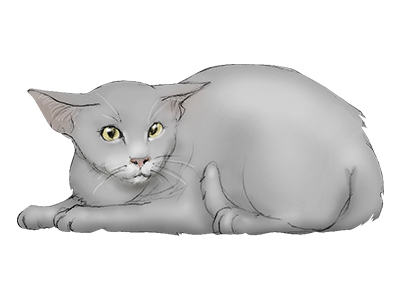Cats are beloved pets. They bring joy and comfort to many homes. However, some cats show signs of aggression. This behavior can be troubling for pet owners. One common question is: Will neutering a cat help with aggression?
What is Neutering?
Neutering is a surgical procedure. It removes a cat’s reproductive organs. For male cats, this means removing the testicles. For female cats, it means removing the ovaries and often the uterus. This process is also known as spaying for females.
Why Do Cats Show Aggression?
Cats can be aggressive for many reasons. It may be due to fear, dominance, or territorial instincts. Sometimes, medical issues can cause aggression. It’s important to understand the root cause.
Common Causes Of Aggression In Cats
- Territorial behavior
- Fear or anxiety
- Medical conditions
- Dominance
- Defensive reactions
How Neutering Can Help
Neutering can help reduce aggression in cats. This is especially true for male cats. Removing the testicles reduces the levels of testosterone. This hormone can influence aggressive behaviors.
Reduction In Hormone-driven Behaviors
High testosterone levels can lead to increased aggression. By neutering a male cat, these hormone levels drop. This can result in less aggressive behavior.
Less Territorial Aggression
Neutered cats are less likely to mark their territory. This includes spraying urine and being aggressive towards other cats. With reduced territorial instincts, aggression often decreases.
Decrease In Roaming
Intact male cats often roam far and wide. They search for mates and defend their territory. Neutered cats are less likely to roam. This reduces the chances of territorial fights.
Other Benefits of Neutering
Neutering offers many benefits beyond reducing aggression. It can improve a cat’s overall health and wellbeing.
Health Benefits
Neutered cats have a lower risk of certain diseases. For males, this includes testicular cancer. For females, it includes uterine infections and breast cancer.
Population Control
Neutering helps control the cat population. This means fewer unwanted kittens. It also reduces the number of cats in shelters.
Improved Behavior
Neutered cats often have better behavior. They are less likely to engage in behaviors like spraying or fighting. This makes them more pleasant companions.
When to Neuter Your Cat
It’s best to neuter cats at a young age. Many vets recommend neutering between 4 and 6 months old. However, older cats can also be neutered. The benefits still apply.
Preparing For Surgery
Before the surgery, your vet will give you instructions. This may include fasting your cat for a few hours. Ensure your cat is healthy and up-to-date on vaccinations.
Post-surgery Care
After the surgery, your cat will need some care. Keep the cat in a quiet place. Monitor the surgical site for any signs of infection. Follow your vet’s instructions for pain management.

Credit: www.nashvillecatclinic.com
Changes in Behavior After Neutering
Many cat owners notice positive changes after neutering. However, the changes may take some time to appear.
Immediate Effects
Right after surgery, your cat may be groggy. This is due to the anesthesia. Give your cat time to recover.
Long-term Effects
Over time, you may see a reduction in aggressive behaviors. Your cat may be calmer and less territorial. The full benefits can take a few weeks to a few months to appear.
Consult Your Veterinarian
Always consult your vet before making decisions about neutering. They can provide personalized advice. They will also check if there are any underlying medical conditions.
Frequently Asked Questions
Does Neutering Reduce Cat Aggression?
Yes, neutering can significantly reduce aggression in cats by decreasing hormone levels that trigger aggressive behavior.
How Soon After Neutering Will Aggression Decrease?
Aggression can start to decrease within weeks, but full behavioral changes may take a few months.
Can Neutering Stop A Cat From Fighting?
Neutering reduces the urge to fight by lowering testosterone levels, making cats less territorial and aggressive.
Will Neutering Make My Cat Calmer?
Yes, neutering often leads to a calmer demeanor as hormone-driven behaviors diminish.
Conclusion
Neutering can help reduce aggression in cats. It offers many other benefits too. These include better health and improved behavior. Always consult your vet for the best advice. Neutering can lead to a happier, healthier cat.

Credit: www.vet.cornell.edu
FAQs About Neutering and Cat Aggression
| Question | Answer |
|---|---|
| Will neutering stop my cat from fighting? | Neutering can reduce fighting, especially if it is hormone-driven. |
| Is it safe to neuter an older cat? | Yes, but consult your vet to ensure the cat is healthy enough for surgery. |
| How long does recovery take? | Most cats recover within a week, but full benefits may take longer. |
| Will neutering affect my cat’s personality? | Neutering can lead to a calmer demeanor without changing core personality. |
| Can female cats be aggressive too? | Yes, female cats can also show aggression, and spaying can help. |
Final Thoughts
Neutering is a responsible choice for pet owners. It helps control aggressive behaviors and offers numerous health benefits. Always consult your vet for the best course of action. Your cat will thank you for it!

Hello, this is Frank Swanson, the owner, and operator of Pet Info Hut. I created this website as a way to share my love of pets with the world. I have over 7 years of experience working with animals, and I have a passion for helping people care for their pets. I hope that you find my website useful and informative. Thanks for visiting!
